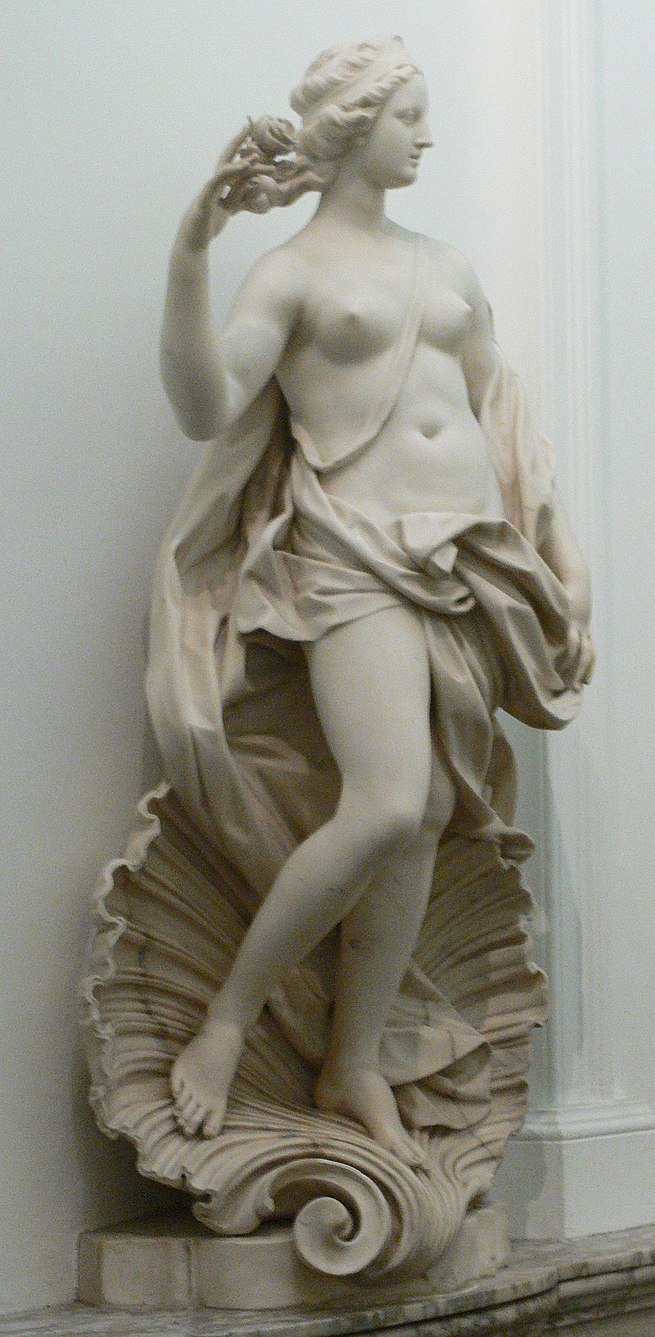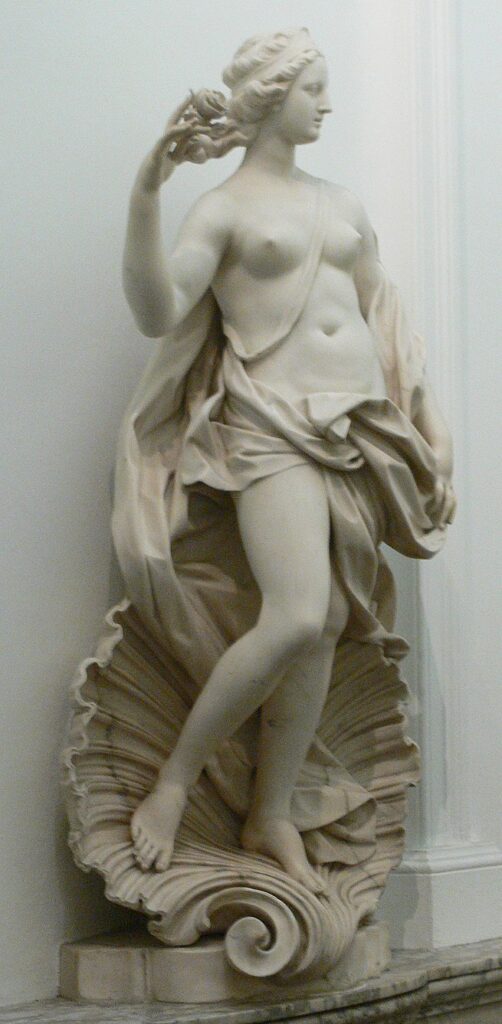
Main Difference
The main difference between Goddess and Angel is that the Goddess is a feminine or female deity and Angel is a supernatural being or spirit in certain religions and mythologies.
-
Goddess
A goddess is a female deity. Goddesses have been linked with virtues such as beauty, love, motherhood and fertility (Mother-goddess cult in prehistoric times). They have also been associated with ideas such as war, creation, and death.
In some faiths, a sacred female figure holds a central place in religious prayer and worship. For example, Shaktism, the worship of the female force that animates the world, is one of the three major sects of Hinduism.
The primacy of a monotheistic or near-monotheistic “Great Goddess” is advocated by some modern matriarchists as a female version of, preceding, or analogue to, the Abrahamic God associated with the historical rise of monotheism in the Mediterranean Axis Age.
Polytheist religions, including Polytheistic reconstructionists, honour multiple goddesses and gods, and usually view them as discrete, separate beings. These deities may be part of a pantheon, or different regions may have tutelary deities. The reconstructionists, like their ancient forebears, honour the deities particular to their country of origin.
-
Angel
An angel is generally a supernatural being found in various religions and mythologies. In Abrahamic religions, angels are often depicted as benevolent celestial beings who act as intermediaries between God or Heaven and humanity. Other roles of angels include protecting and guiding human beings, and carrying out God’s tasks. Within Abrahamic religions, angels are often organized into hierarchies, although such rankings may vary between sects in each religion. Such angels are given specific names or titles, such as Gabriel or Michael. The term “angel” has also been expanded to various notions of spirits or figures found in other religious traditions. The theological study of angels is known as “angelology.” Angels who were expelled from Heaven are referred to as fallen angels.
In fine art, angels are usually depicted as having the shape of human beings of extraordinary beauty but no gender (until the 19th century at least). They are often identified with symbols of bird wings, halos, and light.
-
Goddess (noun)
A female deity.
-
Goddess (noun)
A woman honored or adored as physically attractive or of superior charm and intelligence.
-
Goddess (noun)
A woman of substantial authority or influence.
-
Angel (noun)
An incorporeal and sometimes divine messenger from a deity, or other divine entity, often depicted in art as a youthful winged figure in flowing robes.
-
Angel (noun)
One of the lowest order of such beings, below virtues.
-
Angel (noun)
A person having the qualities attributed to angels, such as purity or selflessness.
“You made me breakfast in bed, you little angel.”
-
Angel (noun)
Attendant spirit; genius; demon.
-
Angel (noun)
An official (a bishop, or sometimes a minister) who heads a Christian church, especially a Catholic Apostolic church.
-
Angel (noun)
An ancient gold coin of England, bearing the figure of the archangel Michael, and varying in value from six shillings and eightpence to ten shillings.
-
Angel (noun)
An altitude, measured in thousands of feet.
“Climb to angels sixty. (“ascend to 60,000 feet”)”
-
Angel (noun)
An unidentified flying object detected by air traffic control radar.
-
Angel (noun)
An affluent individual who provides capital for a startup, usually in exchange for convertible debt or ownership equity; an angel investor.
-
Angel (noun)
A person who has Angelman syndrome.
-
Angel (verb)
To support by donating money.
-
Goddess (noun)
a female deity
“Athena Nike, goddess of victory”
-
Goddess (noun)
a woman who is greatly admired, especially for her beauty
“he had an affair with a screen goddess”
-
Angel (noun)
a spiritual being believed to act as an attendant, agent, or messenger of God, conventionally represented in human form with wings and a long robe
“the Angel of Death”
“God sent an angel to talk to Gideon”
-
Angel (noun)
an attendant spirit, especially a benevolent one
“there was an angel watching over me”
-
Angel (noun)
(in traditional Christian angelology) a being of the lowest order of the ninefold celestial hierarchy.
-
Angel (noun)
short for Hells Angel
-
Angel (noun)
a person of exemplary conduct or virtue
“their parents think they are angels”
“I know I’m no angel”
-
Angel (noun)
used in similes or comparisons to refer to a person’s outstanding beauty, qualities, or abilities
“you sang like an angel”
-
Angel (noun)
used in approval to a person who is kind or helpful
“be an angel and let us come in”
-
Angel (noun)
used as a term of endearment
“I miss you too, angel”
-
Angel (noun)
a person who supports a business financially, typically one who invests private capital in a small or newly established enterprise
“the longer it takes you to get your product into the marketplace, the longer it will be until the angels get their money back”
-
Angel (noun)
a financial backer of a theatrical production
“every year we raise the money for the next season and we are always looking for an angel”
-
Angel (noun)
a former English coin minted between the reigns of Edward IV and Charles I and bearing the figure of the archangel Michael killing a dragon.
-
Angel (noun)
an aircraft’s altitude (often used with a numeral indicating thousands of feet)
“we rendezvous at angels nine”
-
Angel (noun)
an unexplained radar echo.

